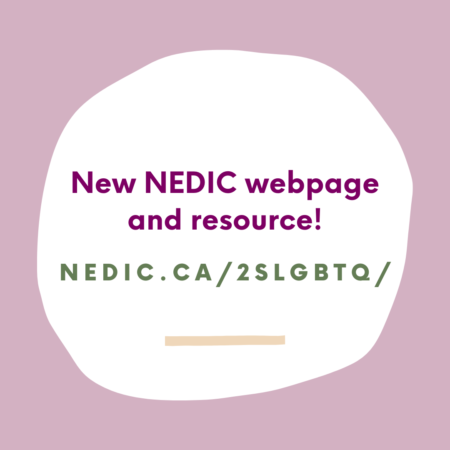This resource speaks to our experiences as 2SLGBTQ+ individuals who have accessed support for eating disorders. While the dominant narrative of eating disorders only affecting white, middle-class, heterosexual, cisgender, teenage girls is being challenged, this long-told story has informed our experiences of care. It informs how doctors understand eating disorders, who might be perceived to struggle, and who can access referrals for support and treatment. The dominant narrative informs how treatment is provided and to whom. It dictates who feels comfortable sharing their story and who is given a platform to tell it. It is present in the “recovery” images we see on social media and the “recovery” biographies we read.
The problem is not with the individuals who have told their stories of struggle and “recovery”. When you access eating disorder supports but none of the recovery stories speak to the experiences of 2SLGBTQ+ individuals, you wonder if you can recover from this thing you are not even sure you can have. When treatment has not been created with you in mind and you do not see 2SLGBTQ+ healthcare providers in eating disorder treatment, you are often left to educate and advocate for yourself.
Our intention is not to lay blame for the healthcare system we currently have. We are grateful for the many people who do their best in an underfunded system. We call for change. We want to emphasize it is not enough for existing eating disorder support to be more inclusive of 2SLGBTQ+ individuals. We need to question how it came to be the way it is and how we can do better. We need to ask ourselves who else is being left out of eating disorder narratives and, by extension, eating disorder supports.
Eating disorder support and treatment were informed by research and treatment models that are considered the gold standard of care. But when those studies do not include 2SLGBTQ+ individuals, or anyone outside of white heterosexual, cisgender youth, we are not offering gold standard programming for all. We are also not offering adequate education about eating disorders.
This resource will by no means discuss every experience, best practice, or gap in eating disorder care for 2SLGBTQ+ communities. We recognize that once we name something and identify common experiences, inevitably, people and experiences will be left out. Our most important message is that 2SLGBTQ+ individuals will have their own personal experiences which may or may not be similar to those of other 2SLGBTQ+ individuals. If you’re reading this in hopes of better supporting a loved one, client, or patient, the best piece of guidance we can offer is to be open to multiple possibilities of experience and believe the person who tells you they may be struggling, even if their experience doesn’t align with your current knowledge and understanding of what an eating disorder is.

